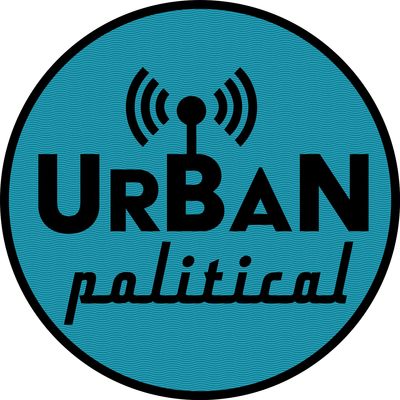The **Urban Political** delves into contemporary urban issues with activists, scholars and policy-makers from around the world. Providing informed views, state-of-the-art knowledge, and unusual insights, the podcast aims to advance our understanding of urban environments and how we might make them more just and democratic. The **Urban Political** provides a new forum for reflection on bridging urban activism and scholarship, where regular features offer snapshots of pressing issues and new publications, allowing multiple voices of scholars and activists to enter into a transnational debate directly. Hosted and produced by: Ross Beveridge (University of Glasgow) Markus Kip (Georg-Simmel-Center for Metropolitan Studies - Humboldt-Universität zu Berlin) Mais Jafari (Technische Universität Dortmund) Nitin Bathla (ETH-Zürich) Julio Paulos (Université de Lausanne) Nicolas Goez (Bauhaus-Universität Weimar) Talja Blokland (Humboldt-Universität zu Berlin) Hanna Hilbrandt (Universität Zürich) Powered in partnership with the Georg-Simmel-Center for Metropolitan Studies at the Humboldt-Universität zu Berlin. Music credits: "Something Elated" by Broke For Free, CC BY 3...
https://urbanpolitical.podigee.io/
episode 10: On Metrolingualism
The Language of the City
In a city, the idea of "standard language" falls apart. Linguistic researchers explain how urban space becomes a vital part of our ability to communicate in multilingual contexts. Think about "spatial repertoires" as the basis for communication. A market in Berlin-Kreuzberg, one of our guests' research site, is the backdrop to illustrate how Turkish, Kurdish, German, English, and other languages are turned into linguistic resources that vendors and customers draw on, switching from one to the other. We discuss what follows from this pedagogically and politically.
A metrolingual poem written and read by Greg Nissan introduces us to the site.
Guests:
Heike Wiese is professor for German in Multilingual Contexts at the Department of German Studies and Linguistics,Humboldt University Berlin. She is the speaker of the Research Unit "Emerging Grammars in Language Contact Situations: A Comparative Approach" and PI of the project "Integration of linguistic resources in highly deverse urban settings: Stretching the Limits of Variability". She is interested in the dynamics of multilingual settings, especially in urban areas. In her research, she investigates urban contact dialects, grammatical developments within heritage speakers’ repertoires, urban markets as metrolingual sites, and the dynamics of German in the multilingual context of Namibia. In transfer and outreach activities, she cooperates with educational institutions, museums, and speaker communities.
Irem Duman is a Ph.D. candidate at the University of Potsdam. She works as research assitant in the SFB 1287 Subproject "Integration of linguistic resources in highly deverse urban settings: Stretching the Limits of Variability". She is interested in urban linguistic diversity, linguistic landscapes, linguistic ethnography, identity construction and belonging through language.
Judith Purkarthofer works at the Center for Language in Urban Diversity at the Humboldt University, Berlin (twitter). Her research is in educational contexts with a focus on the construction of multilingual social spaces in schools and preschools and with families and their language practices. Her work is driven by a lifespan perspective on the multilingual subject, embedded in personal and societal networks, and by the urge to find appropriate methods for working with different age groups. Recent publications include (2016) Sprachort Schule. Klagenfurt, Drava; and (2019) Using Mobile Phones: Recording as a Social and Spatial Practice in Multilingualism and Family Research. Forum Qualitative Sozialforschung / Forum: Qualitative Social Research, 20(1) (doi)
Oliver Bunk is a Ph.D. candidate in the Research Unit "Emerging Grammars in Language Contact Situations: A Comparative Approach" (RUEG) at the Department of German Studies and Linguistics, Humboldt University in Berlin. In his research, he mainly focuses on grammatical and psycholinguistic aspects of language variation in German, in particular, non-canonical word order phenomena.
Serkan Yüksel is a Ph.D. candidate in the research project “Integration of linguistic resources in highly diverse urban settings: Stretching the limits of variability” which is part of the Collaborative Research Center “Limits of Variability in Language – Cognitive, Grammatical, and Social Aspects” (SFB1287). In his research, he mainly focuses on grammatical and sociolinguistic aspects of code-switching in highly diverse urban settings.
Special Guest:
Greg Nissan is a poet and translator of contemporary German-language poetry. He is the author of The City Is Lush With / Obstructed Views (DoubleCross Press). From 2015 to 2016 he was a Fulbright scholar at the University of Potsdam’s Centre for Language, Variation and Migration, where he composed Market Matrix: Ein Kreuzgedicht, a documentary poem about Kiezdeutsch and the Markt am Maybachufer. An excerpt was published in Asymptote’s “Multilingual Writing Special Feature.”
